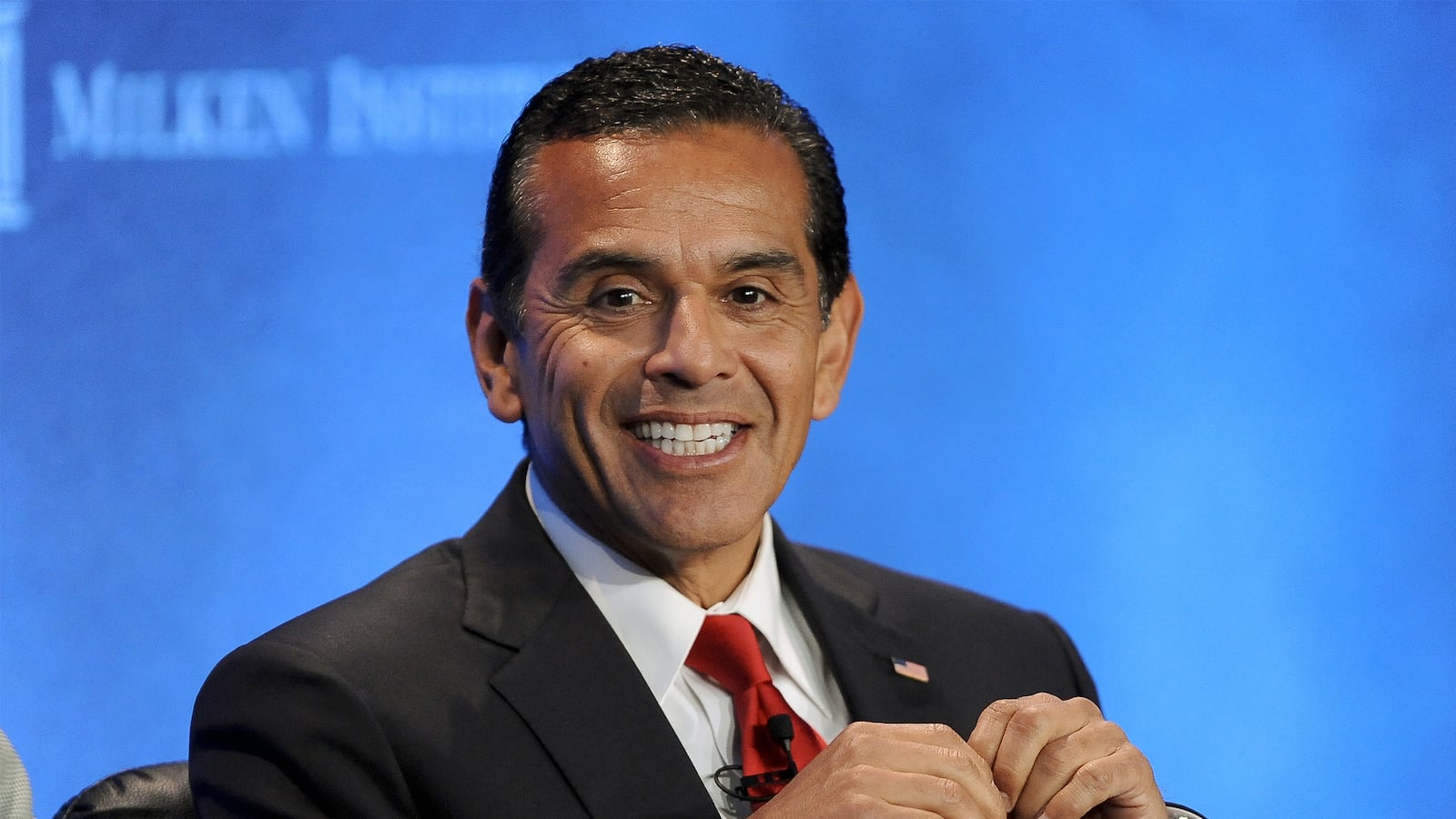African Americans know well the humiliation of being sent to the back of the bus. So it’s ironic that in a U.S. Senate race in California, at least one prominent African American wants to send a viable Latino candidate to the back of the line.
They don’t call this the Golden State for nothing. The contest to fill the seat soon to be vacated by Democrat Barbara Boxer could, according to political experts, be the most expensive Senate race in U.S. history, with a price tag of more than $120 million for both the primary and general elections. Although in California—where, these days, Republicans rarely win statewide office—whoever wins the Democratic primary is pretty much a lock to win the general.
If you live in 49 of the 50 states, it probably seems a tad reductive to take a unfolding high-stakes drama and boil it down to the latest flare-up of the “black-brown thing.”
But if you live in my home state—where Latinos outnumber African Americans nearly 6-to-1 and where, last year, Latinos were poised to outnumber whites—it seems logical, predictable, and unavoidable that it would come to this.
In 2014, according to the U.S. Census, Latinos made up 38.4 percent of California’s population, while whites accounted for 39 percent, and African Americans clocked in at 6.6 percent.
Today, the figures for Latinos and whites have flipped, and the population of African Americans has declined slightly.
Still, Democrats have their own pecking order. And demographics—which, during the civil rights movement, formed the foundation of liberal arguments to desegregate towns in the South and Midwest (i.e., why it matters in Ferguson, Missouri, that a mostly white police force serves a largely African American population)—aren’t so important. When African Americans don’t have the numbers, the narrative shifts to tradition, historical prominence, and allegiance to the Democratic Party. On that scorecard, African Americans come out on top.
Oddly enough, given that African Americans are taken for granted by Democrats and written off by Republicans, they arguably have very little political power.
So, California Democrats take a largely powerless group with a dwindling population and, by putting them ahead of other racial and ethnic minorities, give them power. And once you have power, one of the perks is using it to keep others down.
That’s what Willie Brown is trying to do with California Latinos and, in particular, Antonio Villaraigosa. Brown, a former State Assembly speaker and ex-mayor of San Francisco, has made it known that he thinks that Villaraigosa, who is himself a former State Assembly speaker and ex-mayor of Los Angeles, should take a knee and not run for the Senate seat.
In between shopping for silk fedoras, Italian suits, and Louis Vuitton briefcases, Brown has done the 39 million people in the nation’s most populous state a huge favor by sparing them the hassle of having to think for themselves and decide who would best represent them in the upper chamber. His choice, and the choice of the Democratic Party establishment in Washington, is Kamala Harris, the state attorney general and rising star in the Democratic Party who—like Brown—is African American.
Honestly, Harris’s ethnic makeup is a bit more complicated. Her mother was an immigrant from India. Her father, an economics professor, is Jamaican. In that regard, she is actually closer to the immigrant experience than Villaraigosa—whose father was from Mexico, but whose mother was U.S.-born.
But Harris went to Howard University, a historically black university, and she’s often identified as African American.
The attorney general was the first to declare her candidacy for the Senate seat, and, within days of her announcement, she was getting rave reviews from prominent Democrats—both in California and among the Washington establishment. No fewer than a half-dozen Senate Democrats—including Elizabeth Warren of Massachusetts, Cory Booker of New Jersey, and Kirsten Gillibrand of New York—declared their enthusiasm for her candidacy.
President Obama is also a fan, although the last time he expressed his “enthusiasm” for Harris, it got him in hot water with the First Lady. In 2013, at a fundraiser for the California Democratic Party, Obama referred to Harris as “by far the best-looking attorney general in the country.”
What is not so pretty is the way that Democrats are closing ranks around Harris and all but announcing that the application process is over. It took Latinos by surprise, and, prominent Latino Democrats in California and around the country are complaining that they’re being excluded and discouraged from entering the race. Eventually, they coalesced around Villaraigosa—who has admitted an interest in the seat—as having the best chance to win the Democratic primary.
Which is why Brown asked for a meeting with Villaraigosa, who the elder statesman told The Sacramento Bee was—in the state legislature—“like a young son of mine for years.”
Well, that explains the paternalism. Because of what Villaraigosa represents, when he gets slapped, other California Latinos feel the sting. Right now, as a California Latino, what I feel most acutely is Brown’s hand patting my head.
Brown told The Bee that Villaraigosa should sit out the race in deference to Harris because “his loyalty and his relationship with her should be so valuable, and he should, in my opinion, see it as an opportunity to demonstrate that.”
But why shouldn’t Harris be loyal to her fellow Democrat and step aside? What if Villaraigosa—the Great Latino Hope—does go quietly?
“I am hopeful that his candidacy will be rewarded with a statewide office—at some point,” Brown said.
At some point. Just not now. When we tell you it’s your turn. Not before. Go to the back of the line.
When those condescending comments by Brown were made public, Latino Democrats hit the roof. From their point of view, California would not be a “dark blue” state, where Democrats have a super majority that lets them pass legislation without a single Republican vote, if not for Latino support for Democrats.
The same is true on the national level, where Latinos played a pivotal role in re-electing Obama by helping deliver the battleground states of Nevada, Colorado, and Florida. In fact, a majority of Latinos have voted for the Democratic nominee in every presidential election since 1960. That’s 14 straight elections.
And what do they get for it? A big helping of disrespect.
I can see why Brown is afraid that Villaraigosa will enter the Senate race. The fault line between blacks and browns will widen. White liberals will have to choose sides.
Harris will have to spend more time raising money for a tough primary battle, and less time picking the curtains for her new Senate office. Villaraigosa has sharp political skills.
Then there is the wild card: ethnic loyalty. With Villaraigosa’s name on the ballot in a state where Latinos represent 1 in 5 voters, some Latino voters might simply mark the box next to a Latino surname.
Why, anything could happen. It would be anarchy. The power brokers would lose control.
They used to have a name for something as chaotic and unpredictable as this. What was it? Oh, yes. An election.





